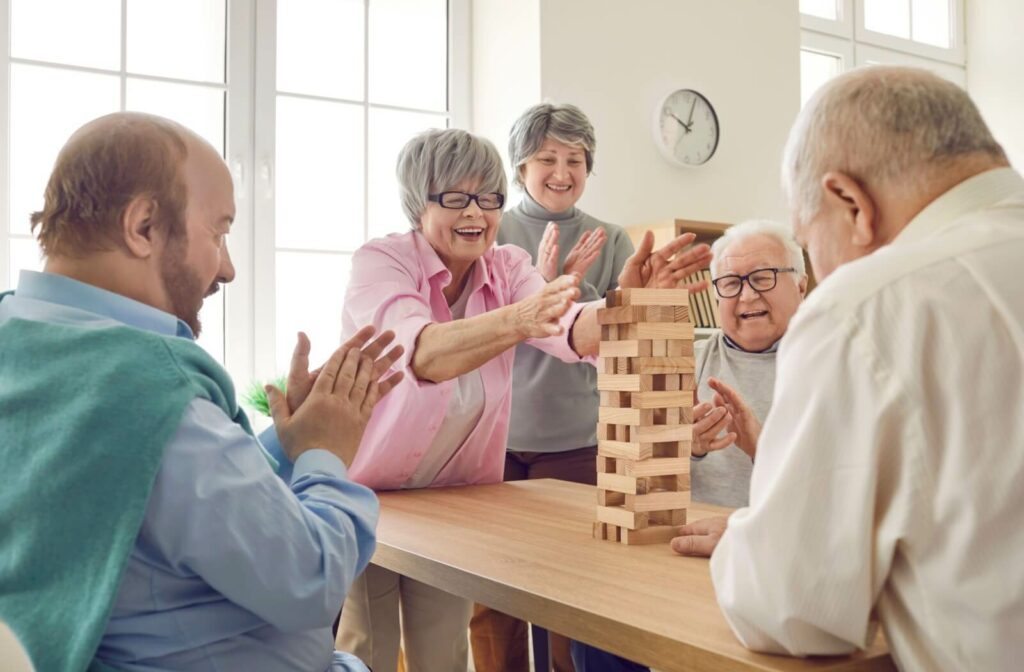Imagine sitting in the cozy living room of your childhood home, sipping tea with your aging parent. The air is filled with warmth and shared memories, but maybe you begin to wonder how well they care for themselves. Or perhaps you’re already caring for a parent, but between balancing work, kids, and your own sanity, it’s beginning to feel challenging.
The delicate decision about moving to assisted living is one that many families face, and it’s crucial to approach it with thoughtful consideration. It may be time for assisted living when your loved one is showing signs of physical or mental health risks, struggling with daily tasks, or they’re becoming isolated. Joining an assisted living community can offer numerous benefits for your loved ones, providing the support they need while allowing them to maintain a sense of independence.
Recognizing the Signs
The first step in determining if assisted living is the right choice is recognizing the signs of physical and mental health decline. These signs may include:
- Frequent falls
- Unexplained weight changes
- Worsening chronic conditions
- Slower recovery times
Such indicators can suggest that your loved one may require more personalized care than you can provide at home. Other indicators can be a bit more subtle, but no less important.
The Activities of Daily Living (ADLs)
A key part of living on your own is being able to care for yourself. The essential self-care tasks that maintain a person’s well-being are called the activities of daily living (ADLs). If your loved one is struggling to perform these activities, it could indicate it’s time for assisted living.
Common ADLs include:
- Mobility
- Eating
- Dressing
- Personal hygiene
- Using the bathroom
Difficulty with daily tasks can manifest in various ways, from trouble moving around the house to forgetting to eat meals. Recognizing these challenges early on can help you make an informed decision about transitioning to assisted living.
Cognitive Decline
While physical health is critical, don’t overlook mental health. Confusion, memory loss, and mood swings can be signs of a condition causing cognitive decline, such as dementia or Alzheimer’s disease. Memory care, a specialized form of care that goes beyond assisted living, can provide seniors with cognitive challenges the support they need to live fulfilling lives.
Loneliness
Social isolation and loneliness are significant concerns for seniors that can affect both their mental and physical health. Growing older can sometimes mean spending more time alone, but if your loved one has lost interest in their favorite hobbies or spending time with friends and family, it may be time to help them find a community where they can make more connections with people at the same stage of life.
Assisted living communities offer a wealth of engaging activities, from arts and crafts to exercise classes, helping residents form meaningful connections and enjoy a vibrant social life. These communities can provide the social engagement your loved one craves, enhancing their overall quality of life.

Benefits of Assisted Living
One of the primary benefits of assisted living is access to professional care and support. Trained caregivers are available around the clock, offering personalized assistance with daily tasks and monitoring your loved one’s health. This level of care provides peace of mind for family members, knowing their loved one is in good hands.
But, of course, what’s a community without the people? Living in an assisted living community offers social engagement. A place where residents can explore their interests with a variety of activities and events. From group outings to creative workshops, these activities foster a sense of community and help residents build lasting friendships.
Assisted living communities provide comfortable and luxurious living arrangements, so your loved one can feel right at home. With spacious apartments, modern amenities, and beautifully landscaped grounds, your loved one can enjoy a high quality of life in a warm and inviting environment.
How to Find a Community
Discussing assisted living with your loved one can be challenging, but it’s important to approach the topic with empathy. Listen to and try to understand their point of view. Encourage open communication, listen to their concerns, and emphasize the benefits of assisted living, such as increased safety and social opportunities. Addressing these questions early can help smooth out this transition.
Once you’re ready to make the move, you’ll have to choose a community! Start by making a list of your loved one’s wants and needs that you can refer back to. When selecting an assisted living community, consider factors such as location, services offered, and the overall atmosphere.
Visit potential communities with your loved ones to get a feel for the environment and ensure it aligns with their vision for their future.
A Community Where Your Loved Ones Shine
At The Legacy at Falcon Point, we love what we do, and our passion for creating a warm, welcoming atmosphere shines through in every aspect of our communities. From personalized care plans to engaging social events, we strive to ensure your loved one feels supported.
Deciding on assisted living for your loved one is never easy, but recognizing the signs and understanding the benefits can make the transition smoother. Our luxurious communities offer a range of amenities designed to make the transition to assisted living easy and inviting.
If you’re considering assisted living for your family member, we invite you to contact our team for more information or to schedule a visit. We’re here to guide you through this important decision and give your loved one a community they can grow into.
